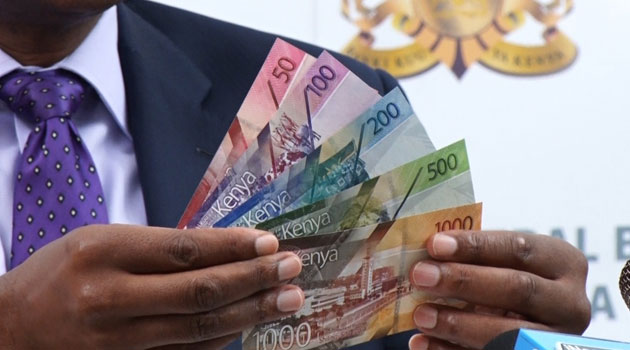Business
KRA To Deactivate Over 20,000 Business Accounts To Curb Tax Fraud
As part of its enforcement strategy, KRA has introduced a “VAT Special Table” – a digital platform that publicly lists entities flagged for non-compliance.

Kenya Revenue Authority takes decisive action against widespread VAT non-compliance as collections fall below expectations
NAIROBI – The Kenya Revenue Authority (KRA) is preparing to deregister more than 20,000 businesses in a sweeping crackdown on tax evasion and VAT non-compliance, officials announced Tuesday.
The mass deregistration represents one of the most significant enforcement actions by the tax authority in recent years, targeting entities that have been actively trading while filing false or missing VAT declarations.
Deputy Commissioner for Micro and Small Taxpayers Gideon Muhwa revealed the scale of the problem during a media briefing in Nairobi on Monday, stating that 20,981 entities have been flagged for deregistration following investigations into widespread tax delinquency.
“We have a real challenge with VAT as a tax head. Collections are far below expectations,” Muhwa said, highlighting the gap between economic activity and actual tax revenue collected.
The investigation revealed staggering losses to the exchequer. Of 10,771 taxpayers who claimed VAT worth Sh29.8 billion, approximately 2,750 repeatedly filed nil returns, costing the state Sh4.7 billion in lost revenue.
Even more concerning, invoices worth Sh35 billion issued by businesses that either failed to file returns or filed nil returns carried Sh5.6 billion in potential VAT that was never paid to the government.
In another category, 120 newly VAT-registered entities reported taxable sales of Sh11.5 billion between July 2024 and April 2025, which should have generated Sh1.8 billion in VAT.
However, none of this revenue reached the tax authority.
As part of its enforcement strategy, KRA has introduced a “VAT Special Table” – a digital platform that publicly lists entities flagged for non-compliance.
The move is designed to apply reputational pressure on tax evaders, with officials warning that being identified as a fraudulent business could severely damage a company’s standing in the market.
“We’re exposing what has become a growing culture of tax evasion disguised as formality,” Muhwa explained, referring to businesses that maintain the appearance of compliance while systematically avoiding their tax obligations.
The enforcement action comes as Kenya’s VAT performance continues to underperform compared to regional peers.
Despite VAT being charged in almost every transaction, it has dropped to become the third-largest source of tax revenue, trailing behind Pay As You Earn (PAYE) and corporate tax.
Kenya’s VAT-to-GDP ratio currently stands at 16 percent, significantly below South Africa’s 27 percent, indicating substantial room for improvement in collection efficiency.
“We all encounter VAT at the point of purchase, yet what is collected doesn’t match the volume of economic activity,” Muhwa observed, highlighting the disconnect between consumer transactions and government revenue.
KRA had previously implemented VAT auto-population, a system designed to cross-check inconsistencies between purchase and sales invoices declared in VAT returns.
While the tool initially showed promise – boosting collections by 17 percent in December 2024 and 15 percent in January 2025 – the gains proved short-lived.
By February, growth had dropped to just 3 percent, and collections actually declined by 11 percent in March.
Officials attributed this decline to “missing trader schemes,” where companies submit false purchase claims using fake documents or other taxpayers’ credentials.
The investigation uncovered sophisticated fraud patterns, including businesses that exploit system loopholes to avoid paying tax while still claiming refunds or input deductions.
Some entities were caught filing completely unrelated invoices to manipulate the system.
Additionally, 1,832 taxpayers filed sales worth Sh9.5 billion and declared VAT of Sh1.5 billion but failed to make the required payments, representing another significant revenue loss.
The mass deregistration is expected to send shockwaves through Kenya’s business community, particularly affecting small and medium enterprises that may have been operating under the assumption that non-compliance would go unnoticed.
For legitimate businesses, the crackdown could level the playing field by eliminating unfair competition from tax-evading entities. However, the action also highlights the need for improved tax education and simplified compliance procedures.
The deregistration process is expected to begin in the coming weeks, with affected businesses likely to face significant operational challenges as they lose their ability to issue VAT invoices and claim input deductions.
Kenya Insights allows guest blogging, if you want to be published on Kenya’s most authoritative and accurate blog, have an expose, news TIPS, story angles, human interest stories, drop us an email on [email protected] or via Telegram
-

 Grapevine2 weeks ago
Grapevine2 weeks agoAlleged Male Lover Claims His Life Is in Danger, Leaks Screenshots and Private Videos Linking SportPesa CEO Ronald Karauri
-

 Grapevine1 week ago
Grapevine1 week agoRussian Man’s Secret Sex Recordings Ignite Fury as Questions Mount Over Consent and Easy Pick-Ups in Nairobi
-

 Investigations6 days ago
Investigations6 days agoMulti-Million Dollar Fraud: Three Kenyans Face US Extradition in Massive Cybercrime Conspiracy
-

 News4 days ago
News4 days agoTHE FIRM IN THE DOCK: How Kaplan and Stratton Became the Most Scrutinised Law Firm in Kenya
-

 Economy4 days ago
Economy4 days agoIran Demands Arrest, Prosecution Of Kenya’s Cup of Joe Director Director Over Sh2.6 Billion Tea Fraud
-

 Business5 days ago
Business5 days agoA Farm in Kenya’s Rift Valley Ignites a National Reckoning With Israeli Investment
-

 Business2 weeks ago
Business2 weeks agoM-Gas Pursues Carbon Credit Billions as Koko Networks Wreckage Exposes Market’s Dark Underbelly
-

 Africa1 week ago
Africa1 week agoFBI Investigates Congresswoman Ilhan Omar’s Husband’s Sh3.8 Billion Businesses in Kenya, Somalia and Dubai















